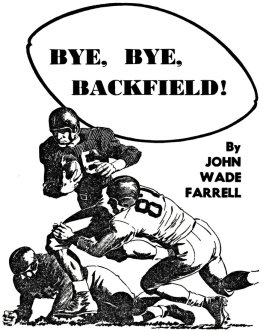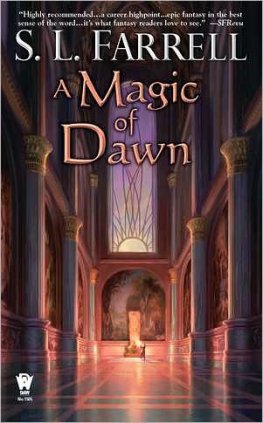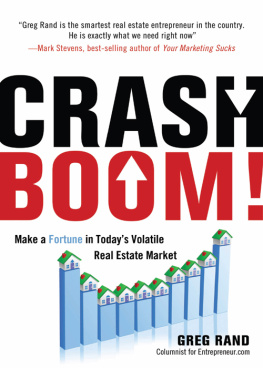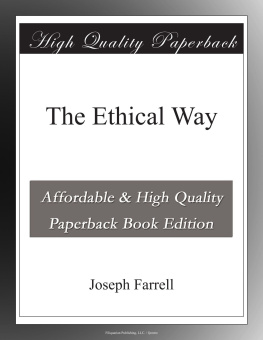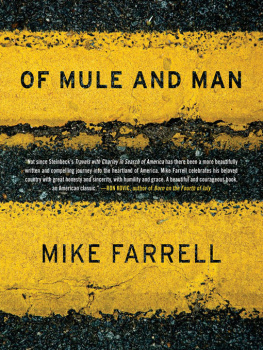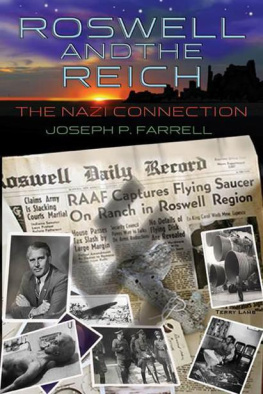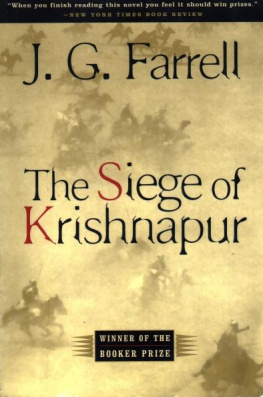Greg Farrell - Crash of the Titans
Here you can read online Greg Farrell - Crash of the Titans full text of the book (entire story) in english for free. Download pdf and epub, get meaning, cover and reviews about this ebook. genre: Detective and thriller. Description of the work, (preface) as well as reviews are available. Best literature library LitArk.com created for fans of good reading and offers a wide selection of genres:
Romance novel
Science fiction
Adventure
Detective
Science
History
Home and family
Prose
Art
Politics
Computer
Non-fiction
Religion
Business
Children
Humor
Choose a favorite category and find really read worthwhile books. Enjoy immersion in the world of imagination, feel the emotions of the characters or learn something new for yourself, make an fascinating discovery.

- Book:Crash of the Titans
- Author:
- Genre:
- Rating:5 / 5
- Favourites:Add to favourites
- Your mark:
- 100
- 1
- 2
- 3
- 4
- 5
Crash of the Titans: summary, description and annotation
We offer to read an annotation, description, summary or preface (depends on what the author of the book "Crash of the Titans" wrote himself). If you haven't found the necessary information about the book — write in the comments, we will try to find it.
Greg Farrell: author's other books
Who wrote Crash of the Titans? Find out the surname, the name of the author of the book and a list of all author's works by series.
Crash of the Titans — read online for free the complete book (whole text) full work
Below is the text of the book, divided by pages. System saving the place of the last page read, allows you to conveniently read the book "Crash of the Titans" online for free, without having to search again every time where you left off. Put a bookmark, and you can go to the page where you finished reading at any time.
Font size:
Interval:
Bookmark:
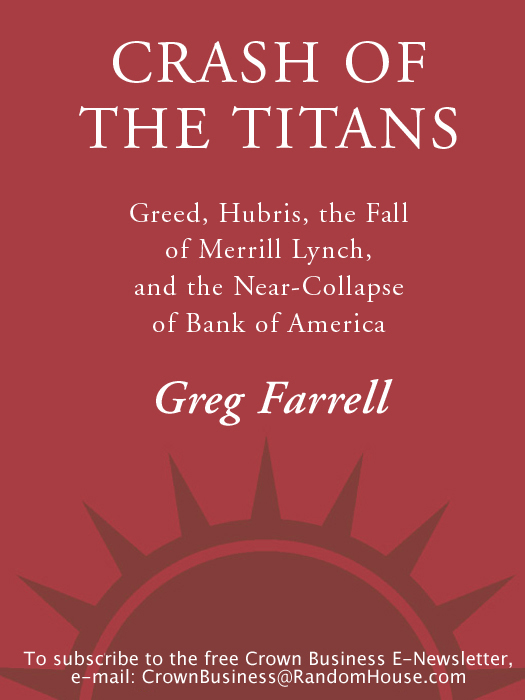
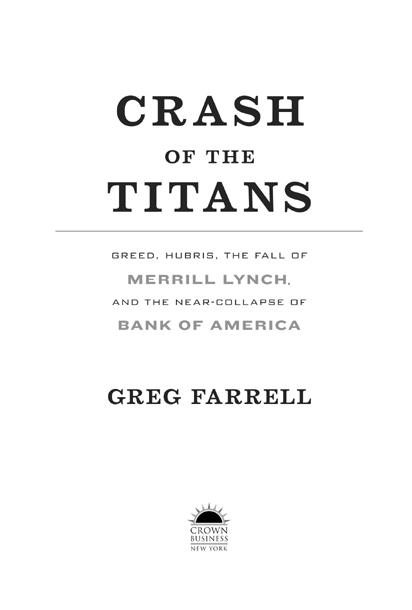
Copyright 2010 by Greg Farrell
All rights reserved.
Published in the United States by Crown Business, an imprint of the Crown Publishing Group, a division of Random House, Inc., New York.
www.crownpublishing.com
C ROWN B USINESS is a trademark and C ROWN and the Rising Sun colophon are registered trademarks of Random House, Inc.
Library of Congress Cataloging-in-Publication Data is available upon request.
eISBN: 978-0-307-71788-7
v3.1
In memory of my father,
D AVID J. F ARRELL ,
a righteous man
THE WONDER OF IT ALL
STAN ONEAL, CHIEF EXECUTIVE officer of Merrill Lynch, a Wall Street firm on the verge of disaster, had only himself to blame. He calculated the damage that had been wrought. He reviewed the mistakes he had committed, the strategic blunders, the errors in judgment, and disregard for risk, all of which was exacerbated by faulty execution. Of course it wasnt entirely his fault, since he relied on the advice of the one person who should have known betterhis caddy.
The final tally for ONeals round of golf was 88, one stroke better than the day before, but well off the 80 he had shot just a week earlier at Waccabuc, near his home in a remote corner of Westchester County, north of New York City. It was near twilight on a Sunday in late September 2007, and as mediocre as his round of golf at the Country Club of Purchase had been, at least it was a better experience than the meeting hed had in the city that day, where he had flirted with the unthinkable.
JUST A FEW HOURS earlier, ONeal found himself squirming in the backseat of his Audi A8 as his driver navigated the Sunday afternoon traffic of Manhattan, crawling inexorably, block by block, red light by red light, toward his destination, the Time Warner Center on the southwest corner of Central Park.
As always, when the Merrill Lynch chief executive was hatching a plan of any magnitudefrom the firing of top executives to the outright sale of Merrill Lynch, which was the reason for his meeting this dayhe relied on the counsel and advice of the only person he absolutely, unconditionally trusted: himself.
Throughout his career, that trust had been well-placed. The story of ONeals rise to the pinnacle of Wall Street was by now legendary. The fifty-seven-year-old African-American, born in Roanoke, Alabama, and raised in the dirt-poor town of Wedowee, Alabama, the grandson of a man born into slavery in the 1860s, had shattered every glass ceiling and stormed through, over, or around every obstacle placed in his way to become chief executive of Merrill Lynch at the end of 2002.
Over the next five years, he transformed the business. The backbone of Merrill Lynch had always been its nationwide network of financial advisorsthe 16,000 men and women spread across the U.S. who managed not only the investments of the wealthiest people in Philadelphia, Chicago, San Francisco, Los Angeles, and other large cities, but the slender portfolios of the hardworking citizens in second-tier towns like Cincinnati, Wichita, Lansing, Spokane.
Most Wall Street banks and brokerage firms catered to huge institutional investorspension funds with billions of dollars in assetsand plutocrats sitting atop massive fortunes. It was the genius of Charlie Merrill, the founder of Merrill Lynch, to look beyond the super-wealthy and build an investment advisory business at the grassroots level, by courting the modest sums of the thrifty, as he wrote early in his career.
Starting in the 1940s, when most Americans still had searing memories of the stock market crash of 1929 and the Great Depression that followed, Merrill pursued his vision. Over the course of several decades Merrill Lynch became a powerhouse through its incomparable network of bullish on America, and from that point forward, the symbol of the bull became synonymous with Merrill Lynch. The firms retail brokers became known as Merrills thundering herd.
Across the United States, in every town where they set up shop, members of Merrills thundering herd were among the most prominent citizens, stalwarts of the local Rotary clubs, people who could be counted on to raise money for charitable causes. They were the pillars of their communities.
By 2000, the world of capital markets had changed. In order to keep growing, Merrill Lynch had built up its own investment bank so it could originate the stock offerings that were then distributed and sold through its network. It had also constructed a world-class sales and trading operation allowing the firm not only to buy and sell stocks directly for its clients but also to traffic in the lucrative world of fixed-income derivative products, a market in which Merrill Lynch could bet large sums of money to generate easy revenues.
In 2001, Stan ONeal beat out his competitors for the top job at Merrill Lynch in part because he convinced the board of directors he could whip the firms disparate businessesweighed down by a low-growth network of financial advisorsinto a more profitable, full-service investment bank.
From 2002 through 2006 he delivered on that promise, de-emphasizing the companys roots as a retail brokerage network and building up Merrills sales and trading operations, which generated billions of dollars in profits each year. Through the first two quarters of 2007, Merrill Lynch continued its streak of record breaking profits, establishing itself as a Wall Street colossus that rivaled Goldman Sachs, the ultimate Wall Street money machine.
The date was Sunday, September 30, 2007. meet with Ken Lewis, chief executive of Bank of America, who was prepared, as a precondition of the meeting, to offer $90 a share to buy Merrill Lynch outright. The stock price had closed at $71.28 the previous Friday. Merrill Lynch had more than 853 million shares outstanding, so at $90 per share, Lewis was prepared to pay almost $77 billion for the company. Based on its own share price, Bank of America had a market capitalization of $223 billion, about three times the size of what Lewis was willing to put on the table for Merrill.
ONeal had kept the meeting secret from the firms directors and everyone else at Merrill Lynch except for his general counsel, Rosemary Berkery, and treasurer, Eric Heaton, from whom he needed specific information for his discussion. He swore both executives to keep the matter to themselves.
The Merrill Lynch CEO was sitting on another secret as well, one which the world outside of Merrills board and senior management did not know about. There was a hole in Merrill Lynchs balance sheet that would wipe out most of the banks profits for the quarter and threatened to destroy the institution completely.
After more than five years of easy credit in the banking systemthe equivalent of pleasant weather and favorable breezes on the high seas of global financea shift had taken place over the summer. The great real estate bubble that had helped fuel growth in the financial sector for much of the decade had burst in early 2007. Companies that originated subprime mortgages were in trouble, if not in bankruptcy, based on an alarming spike in foreclosures. Banks that had gladly provided overnight funding to each other on easy terms suddenly pulled back automatic lines of credit.
Ken Lewis knew all that. What he did not know was that Merrill Lynch, which had more than doubled its balance sheet to $1 trillion in assets over the previous two years, had been mortally wounded by the wipeout of the subprime mortgage market. ONeal only tuned in to the problem in late July, after the implosion of two hedge funds run by a competing firm, Bear Stearns. The funds had been gigantic, multi-billion-dollar bets on collateralized debt obligationsCDOs, for shortwhich were securities constructed from subprime mortgages. Following the collapse of the Bear Stearns funds, other Wall Street firms, including Merrill Lynch, scoured their own balance sheets for any signs of exposure to the subprime market.
Font size:
Interval:
Bookmark:
Similar books «Crash of the Titans»
Look at similar books to Crash of the Titans. We have selected literature similar in name and meaning in the hope of providing readers with more options to find new, interesting, not yet read works.
Discussion, reviews of the book Crash of the Titans and just readers' own opinions. Leave your comments, write what you think about the work, its meaning or the main characters. Specify what exactly you liked and what you didn't like, and why you think so.

